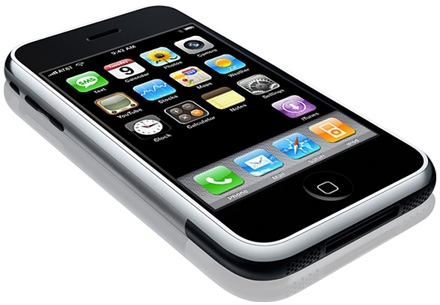
By Amanda Morrall
Where once phone use was all about the texts and air time, increasingly (since the introduction of smart phones and tablets) it's all about the data use. With mobile phones now serving as portable offices or entertainment centres, consumption is growing at a exponential rate.
Constraint is one way to minimise the data consumption. Smarter use is another.
Guy Rosen, developer of a free new app called Onavo, in an interview with interest.co.nz from his home-base in Israel, said smart phone users who want to make the most of their data plans have some tools and tips at their disposal.
One of them is data compression, which is what Onavo does. It reduces data usage on smart phones and tablets by as much as 80%, said Rosen.
Although the app launched less than a year ago, Rosen said it was already saving users world-wide millions per month.
In addition to compacting the data used by smart phone, emails, webpages, movies etc. it shows users what applications on their phone are the biggest data hogs so users can modify and monitor their use and ultimately lower their costs or maximise their plans.
With New Zealand mobile phone usage rates among the highest in the OECD, Rosen said users here stand to benefit from being better informed. The price gap between the standard 250 and 500 megabyte data plans is three times the international average.
With greater numbers of people making the move to smart phones or else tablets and transacting more of their day to day personal and professional business off them, data volumes are poised to rocket.
"Data is the fastest growing part of any phone bill and it can get very expensive with the high end smart phones when you are on-line checking emails, watching videos or just browsing the web.''
Travellers who have packed their phones on long distance trips will be all too familiar with the pain of roaming charges.
"Operators are charging something like $10 for every megabite used abroad, which means that reading an average web page can cost you anything between $5-$10," said Rosen.
"So you might get back from summer vacation with a huge phone bill without having done very much."
Unbeknownst to many users, smart phones eat up a greater amount of data when they are automatically updating emails, a function that while important for some business folks, is not necessarily mandatory. It can be switched to manual. Also, using a http address for a website that has a mobile specific one also uses more data.
Onavo, whose apps will likely move to a user pay model later this year, offers the following tips to reduce mobile data use in order to save money or else make the most of data allowances.
Five tips from Onavo for cutting your mobile data bill:
Tip 1: Don't shop on the go The App Store is one of the major drivers of mobile data - download your songs and apps at home over WiFi and you could knock more than 10% off your usage straight away.
Tip 2: Switch Email to manual When email is set to "push" your device is constantly checking for new emails and downloading them automatically. Change your settings to "manual" and get emails only when you want them resulting in a 5-10% reduction in usage.
Tip 3: Use mobile websites. Many websites have a mobile version which uses much less data. Instead of www. try typing m. before the address instead. Estimated reduction of 20-30%.
Tip 4: Compress your data. Sites like Onavo can compress your data by up to 80% without impacting the way your phone works. This can help you drop down a plan, or even two. They also tell you how much data each app uses so you are in control.
Tip 5: Movies made for WiFi The number 1 use of data across America is streaming movies. They hog your data and can send your plan over the edge faster than Thelma and Louise.
And 2 things you'd be surprised to know that you DON'T need to worry about: Facebook: Despite our addiction, the Social Network accounts for less than 5% of data for iPhone users. YouTube: While movies are the biggest data hogs known to (mobile) man, YouTube has pretty good compression and is less data heavy than the other movie sites (but still worth taking it easy).
Top data using apps:
1. Video and music streaming (35% of all iPhone/iPad data)
2. Web browsing (20%)
3. iTunes App Store (13.5)
4. Navigation (8.3%)
5. Email (4%)
We welcome your comments below. If you are not already registered, please register to comment
Remember we welcome robust, respectful and insightful debate. We don't welcome abusive or defamatory comments and will de-register those repeatedly making such comments. Our current comment policy is here.